




EPR is succeeding the Producer Responsibility Packaging Regulations to place a greater responsibility on businesses for the ‘Full Net Cost’ of packaging at end-of-life.
There is a change as to who is obligated in addition to the amount, frequency & detail of packaging data reporting required. For businesses, it is more complicated and likely to cost more.
Companies with a turnover above £2m and who supply 50 tonnes or more of packaging will be required to report data for the packaging they have placed onto the UK market. Based on this, they will be required to pay towards recycling costs and potentially the disposal costs of packaging.
There will be new data only reporting requirements for any business with a turnover between £1m to £2m and supplying between 25 and 50 tonnes of packaging into the UK.

The EPR system has two main cost parts: the current PRN system covering the cost of recycling; and a new element called disposal costs or modulated fees.
The new disposal costs/modulated fees element is designed to cover the net costs of Local Authorities for the collection of household waste. This will be calculated by material type, with difficult-torecycle materials attracting a punitive fee.

With the PRN system expected to cost around £500m a year, the disposal costs/modulated fees will add around £1.2bn on top of this.
You will continue to obtain your PRNs through us as your Compliance Scheme, however the disposal costs will be paid directly to an EPR administrator, which will be a government body.
The EPR administrator is set to be appointed at the end of 2023 by Defra.
EPR does away with the existing ‘shared’ obligations between manufacturers, convertors, packer/fillers, sellers and end users. Instead it places the whole obligation on just one type of producer.

This impacts your business in the first instance as you need to identify which producer type(s) your business is responsible for and there may be more than one type that applies. This redefining of producer types means the size of your obligation could change significantly.
You are a Brand Owner if your company has their name, trademark, logo etc. on an item of FILLED packaging. If a pack is branded with one piece of packaging, you must include all non-branded packaging that forms the pack as well.
A Packer/Filler is a company who packs goods into packaging where there is no brand owner.
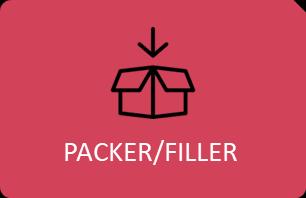
An Importer imports FILLED packaging into the UK. This includes:
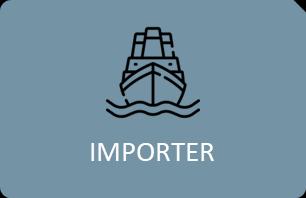
- POS where there is no brand owner;
- SECONDARY and OUTER packaging;
- Branded, if the brand-owner is not a Large Producer.
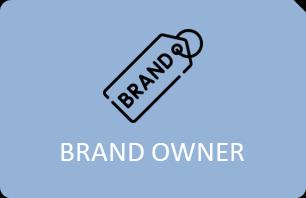
A Distributor supplies UNFILLED packaging that is:
- Manufactured or Imported by the Distributor;
- Supplied to anyone who is not a Large Producer.
You are an Online Marketplace if you supply any packaging around goods sold online through a marketplace where:

- In all cases, where the operating company is OUTSIDE of the UK.
- This includes selling unfilled packaging to a business who is not a Large Producer.
A Service Provider relates to any packaging that is leased or rented The obligation only applies the first time the packaging is used.

With the introduction of new lower threshold tests more companies will be captured under EPR.
The starting point is to determine which producer category your business sits in. If your business has a turnover less than £1m or you supply less than 25 tonnes of obligated packaging then you do not need to register, but should monitor your packaging and check this annually.

Under EPR companies will need to report the type of waste their packaging will become at endof-life. This determines the level of additional disposal/modulated fees that a business will need to pay on top of the current PRN system.
In data collection terms you need to identify what type of waste the packaging you supply will ultimately become.
By default all POS and Shipment packaging will be treated as household packaging unless you can prove you have supplied it to a business who removes it.
By default this will include all Outer and Transit packaging that will be removed by a business you have directly supplied.
Often referred to as ‘on-the-go’ packaging. This will include packaging around food, drinks and tobacco type products subject to size.






Your business must assess the packaging supplied and has a full obligation. You must report data twice a year and pay fees towards packaging recycling (PRNs) and you will also have to pay Disposal/Modulated Fees if you supply Household packaging.
Your business must assess the packaging supplied and has a reporting only obligation once a year
< £1m turnover or supplying < 25 tonnes
Your business is currently not affected by EPR.
Additional reporting will be required for drinks containers to include the weight and number of units supplied by material.
This refers to all packaging that is designed to be re-used. The obligation will only be picked up on first use.
This applies to any waste you take back from your customers, or collected for recycling.
Packaging is defined as: All products made of any materials of any nature to be used for the containment, protection, handling, delivery and presentation of goods.
Each packaging item will also need to be identified as to whether it is Point of Sale (POS), Outer, Shipment or Transit packaging.
Primary (POS)
Packaging around a sales unit
Secondary (Outer)
Packaging grouping a number of sales units
Packaging must be reported by material type, with the introduction of a new category called ‘fibre-based composites’. The different packaging material types are:
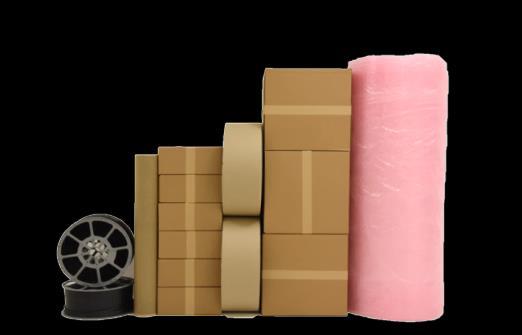
Paper Glass Aluminium
Steel Plastic Wood

Fibre-based Composites
Other (need to specify)
A fibre-based composite is a packaging material that is made of paperboard or paper fibres laminated with plastic and/or other laminated materials. The nature of the packaging unit means each material cannot be separated by hand.
A common example of fibre-based composite packaging is a disposable coffee cup.

Shipment (New)
Packaging added to POS packaging on items sold online or via mail order

Packaging to facilitate handling and transport of a number of sales units or outer packages


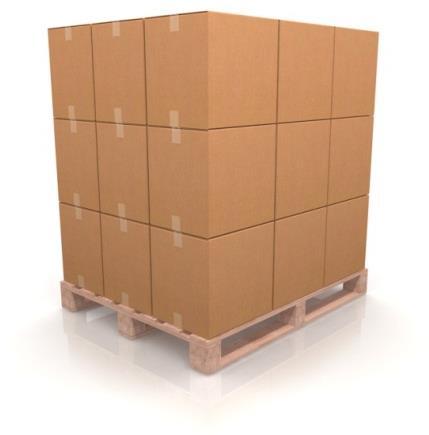
The government is developing a new registration portal for EPR, called Manage My Packaging Service (MMPS). This is planned to be available from the 1st July 2023.
Large producers will need to register on the MMPS and input their company details. As part of this process you will need to select Paperpak as your Packaging Compliance Scheme.
As your Compliance Scheme we will then be able to submit your data.

The government have set out a planned timetable for Registration and Data Reporting for Large Producers. This is subject to a data specification being produced which remains outstanding at the time of writing (beginning of March 2023).
After registering for EPR, in July and August of 2023 businesses will need to complete their first EPR data assessment. The specific format for this data
For any business that removes packaging around imported goods, or supplied an end consumer directly, they will have to report how much packaging they have Placed On Market by nation.
By nation means whether the end consumer is in England, Scotland, Wales or Northern Ireland. Businesses will need to report POM for the calendar year 2023 by 1st December 2024.
has yet to be finalised by Defra, which makes preparation very difficult. We will naturally provide further updates when the necessary information is published.
The same data will be used to determine both your PRN obligation and your disposal/modulated fees. N.B. PRNs will be obtained by us, whilst the disposal/modulated fees will be paid directly to the EPR Administrator when it is created. Although reporting of EPR data is planned to begin in 2023, there will be no disposal/modulated fees payable until 2024.
Note: Small producers will not be required to register for EPR until 1st January 2024 and will submit their data in Q1 of 2024 based on the calendar year
With data assessments for EPR to be completed in July & August 2023, it is worth starting to think about what information you will need to have to meet the data reporting requirements.
The difficulty is that EPR is being rushed through and there remains many uncertainties regarding how the new Regulations will be applied in practise. Nevertheless it is worth starting to think about how EPR might affect your business and the type of information you might need.
The checklist below gives you a starting point and we will be working with you over the coming months to ensure that you have what you need to register and report EPR data.
EPR will cost many businesses a significant amount more, compared with the existing PRN System, with the disposal/modulated fees adding a considerable cost for any packaging classed as household.

This, when linked to the new Producers picking up 100% of the obligation, means there is a real incentive for businesses to review the packaging they are using.
Defra are planning to published a cost calculator to assist companies trying to budget EPR costs for 2024.
Initial forecasts indicate that disposal/modulated fees could be in the region of £100 to £1,000 per tonne of packaging supplied, depending upon the ease of recyclability.
It is therefore in the interest of businesses to review the recyclability of the packaging they use and where possible move away from difficult to recycle products to those that are easy to recycle.
Which producer activities relate to your business?
(brand owner, packer/filler, importer, distributor, online marketplace or service provider)
Are you a Small or Large Producer?
(turnover in last audited accounts on Companies House and weight of packaging supplied / placed onto the UK market)
What waste types will the packaging you supply become?
(Household, non-household, street bin, drinks containers, re-useable or self-managed waste)
Record packaging weights in (kg) by material type to the nearest gram


(Paper, Glass, Aluminium, Steel, Plastic, Wood, Fibre-based Composite or Other. e.g. 0.023kg )
Record the packaging type
(Primary, Secondary, Shipment or Tertiary)
Identify where your customers are by UK nation
(England, Scotland, Wales or Northern Ireland)
Paperpak has been supporting businesses with their Packaging Data Submissions since 1998. We help by cutting through the complexity to allow you to understand the Regulations and how they affect your business.


Data collection and reporting will become more complicated with EPR and with our knowledge of the Regulations we will work with you to ensure that your data meets the requirements of EPR. The challenge for all parties remains that we don’t have a full Blueprint for EPR detailing precisely what data is required from business and because of that Defra are not giving business enough time to prepare.
As part of the preparations for registration and Large Producers reporting data from 1st July we will be producing for Members:
We will be producing an EPR video to explain the new Regulations for you to watch when it is convenient to you. Planned for early April.
As more information and updates come out of Defra, we will communicate these to you to keep you up-to-date with the latest position as and when the news breaks.




Once the data requirements have been specified by Defra we will develop our reporting systems and roll these out to Members.
We will provide our usual personalised service to help you with collecting the data you need for your first submission in July 2023. This will include a review of the EPR checklist to ensure the data is reported as required under EPR.